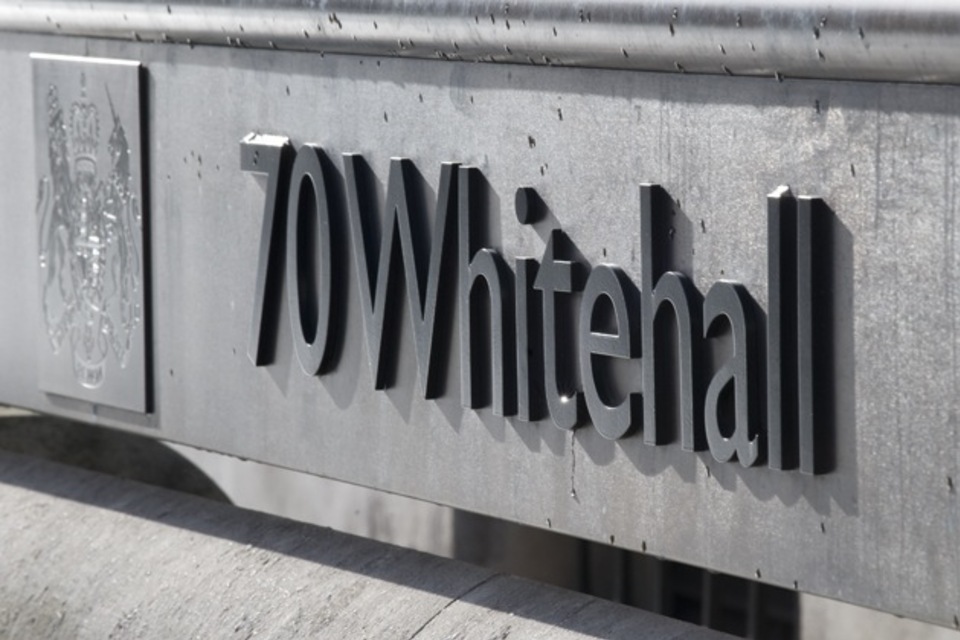-
Millions of workers set for significant pay increase in April to improve living standards and drive growth
-
Pay boost worth £1,400 a year for an eligible full-time worker as Government takes significant step towards genuine living wage
-
Living wage boost set to put more money back into the pockets of working people and kickstart growth as part of the Plan for Change
Over 3 million workers in shops, restaurants and workplaces across the UK are set to receive a significant pay boost from April – putting thousands of pounds back in the pockets of working people every year. As a result of these changes, a further 4 million workers could benefit from the positive spill-over impacts of the rate increases.
The Government will lay legislation today that confirms a new National Living Wage of £12.21, and a new National Minimum Wage of £10.00 per hour from April.
Announced at last year’s Budget, the 6.7% increase to the National Living Wage which will be worth £1,400 a year for an eligible full-time worker is a significant step towards delivering the manifesto commitment to deliver a genuine living wage.
The National Minimum Wage for 18-20-year-olds is also set to increase by £1.40 to £10.00 per hour – a record increase which means full-time younger workers eligible for the rate will see their pay boosted by £2,500 a year.
An impact assessment also published today shows that these reforms will put around £1.8 billion into the pockets of workers over the next six years – delivering on the Government’s Plan for Change to improve living standards and make working people better off.
The increased income is set to boost financial stability for millions of families and improve spending power which will drive economic growth.
Employment Rights Minister Justin Madders said
Economic growth only matters if working people are feeling the benefits.
This will be a welcome pay bump for millions of workers who in turn will spend more in the real economy boosting our high streets.
Our Plan for Change is putting money back into people’s pockets and delivering better living standards across the country.
Chancellor of the Exchequer Rachel Reeves said
This Government promised a genuine living wage for working people that will support people with the cost of living, creating a workforce that is fit and ready to help us deliver number one mission to growth the economy.
This pay boost for millions of workers is a significant step towards delivering on that promise.
Deputy Prime Minister Angela Rayner said
We’ve taken quick and sensible action to boost wages for millions of lower paid workers who are the backbone and future of our economy.
This is us fulfilling our promise to make work pay and improve living standards across the country, with record boosts to support young people and apprentices – our skilled workers of tomorrow.
The National Minimum Wage is the minimum amount an employer must pay per hour for most workers, while the National Living Wage is the higher rate that applies to workers aged 21 and over.
This is the first time the National Living Wage has taken into account the cost of living and inflation and marks the first step towards aligning the National Minimum Wage for 18–20-year-olds and National Living Wage to create a single adult wage rate.
This will put an end to age-based wage discrimination, meaning employers can no longer be justified in paying younger workers less for doing the same job as their older colleagues.
The minimum hourly wage for an apprentice is also set to be boosted this year, with an 18-year-old apprentice in an industry like construction seeing their minimum hourly pay increase by 18.0%, a pay bump from £6.40 to £7.55 an hour.
The April pay rise comes as the latest ONS stats showed average weekly earnings after inflation have risen at their fastest year-on-year rate in over three years.
This builds on the commitment to be a pro-business, pro-worker, pro-growth Government. It delivers a key plank of the Plan to Make Work Pay, which is already set to boost the pockets of some the lowest paid workers by up to £600 a year through the Employment Rights Bill.
The Employment Rights Bill will boost productivity by creating a secure workforce to help us deliver our first mission to kickstart economic growth.
Working across government, including with HMRC and Acas, we will continue to engage closely with businesses, unions and wider society to ensure that all employers are aware of the new rates and taking the steps needed to prepare for payroll changes on 1 April.
Low Pay Commission Chair Baroness Stroud said
The increases we recommended are a big step towards making work pay and achieving a genuine living wage.
These rates secure a real-terms pay increase for the lowest-paid, and substantial increases for young workers make up some of the ground lost against the adult rate over time.
It’s important we continue to assess the effects of these changes on employers and workers; to that end, the Low Pay Commission will be consulting with both groups in the coming months.
TUC General Secretary Paul Nowak said
This government is delivering on its promise to make work pay. The increase in the national minimum wage will make a real difference to the lowest paid at a time when one in six are skipping meals to get by. And moving to end the outdated and unfair youth rates will give young workers a boost up and down the country.
More money in working people’s pockets means more spend on our high streets – that’s good for workers and good for local economies. After workers in the UK have been through the biggest squeeze in living standards in 200 years, this boost to working people’s pay packets is badly needed.
Jason Davenport, CEO of The Chartered Institute of Payroll Professionals (CIPP), said
With continued pressure on employers, it’s imperative that we ensure the new rates are understood, implemented and paid to workers correctly.
Compliance can be complex with issues for employers to be alert to around, for example, salary sacrifice arrangements.
The CIPP urges employers and agents to get their payroll processes ready for 1 April 2025 and the CIPP is on hand with support, advice and resources to help payroll professionals and employers ensure their workers are paid compliantly.
Notes to editors
The changes from April will mean
-
The National Living Wage for those aged 21 and over will rise from £11.44 per hour to £12.21 per hour.
-
The National Minimum Wage for 18- to 20-year-olds rises from £8.60 to £10.00 per hour.
-
The apprenticeship rate, and for 16- to 17-year-olds rises from £6.40 per hour to £7.55 per hour.

.jpg?trim=0,0,0,0&width=1200&height=800&crop=1200:800)






